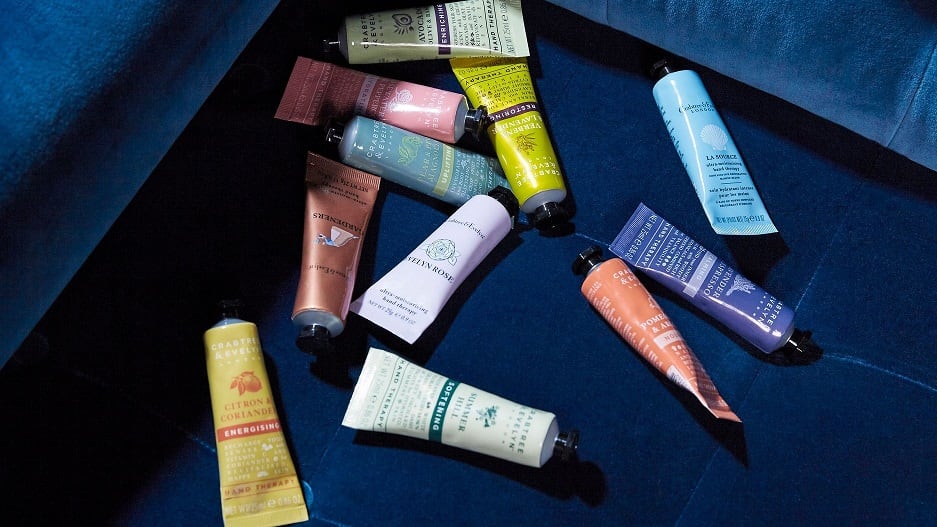At the start of the year, bath and body care brand Crabtree and Evelyn announced that it was moving the business online, shutting all physical stores in the process, save for one new retail concept store in the London.
While the news may have taken consumers by surprise, some industry insiders were already expecting this outcome.
“The writing has been on the wall for Crabtree & Evelyn for quite some time,” commented Nicole Fall, founder of Asian Consumer Intelligence. “It’s most recent headlines were rarely about new innovations or new store launches but what appeared to be a continuous list of new owners, bankruptcies and store closures.”
Fall reveals that she got a sense of the brand’s troubles through her involvement in a marketing pitch to reposition the brand a few years ago.
“Very generally speaking, brand refreshments tend to happen when brands face growth issues, not when they are doing well. So I think industry insiders were not overly surprised with Crabtree’s recent announcement that it was drastically scaling back.”
Reliance on legacy
Crabtree & Evelyn was founded in the United States in 1972. It was sold to Malaysian multinational, Kuala Lumpur Kepong Berhad in 1996.
Hong Kong-based Khuan Choo International acquired the brand in 2012, before it was taken over by another Hong Kong company, Nan Hai Corporation in 2016.
In Fall’s view, these companies relied too heavily on Crabtree & Evelyn’s legacy, which eventually sealed the brand’s fate.
She stressed that investment funds that acquire beauty brands need to understand that there is more to growing a personal care brand than just numbers on a spreadsheet.
“In Asia, marketing is fundamental to beauty. If a brand cannot get marketing right, then it has no business in this category,” said Fall. “Personal care is an emotional category for some consumers, and when they purchase a soap or a cleanser they are often seeking a secondary or third benefit.”
Unfortunately, Crabtree & Evelyn’s acquisitions seemed to be “driven by the thrill of purchasing an established brand name”, said Fall.
While, there is no doubt the brand carried some value, it was not enough to cement it position among new consumers and millennials.
“While its brand name probably meant something to an older generation of consumer or a consumer who is familiar with the brand because they have seen its stores, the brand’s future consumer in developing countries either thought the brand was for their mother - or worse, their grandmother,” Fall explained.
She added: “Or they had never come across it because it was largely irrelevant to millennials. It had simply become another brand among the tens of thousands of beauty brands in the region because its marketing had failed to connect with a new generation of shoppers.”
An uncertain online future
Fall pointed out that the choice to move its business almost completely offline is a “paradoxical” move for the company.
She explained that even though it saves the company operational costs, it means shuttering the very store fronts that kept the brand in the consumer’s mind.
“The move is also anachronistic because a brand that is so reliant on its signature scents should provide consumers the opportunity to experience its lines. Even the most digitally savvy brands are desperately seeking retail premises or turning to pop ups to put their product into the hands of consumers and not just in front of their eyes, as only online retail can do.”
Not the end
While making a full retreat online is a risky move for any brand, Fall believes Crabtree & Evelyn does have potential if the brand is willing to invest into new ideas.
“Crabtree & Evelyn is a really beautiful brand that can focus on its artisanal origins and reinforce that legacy with all natural ingredients sourced from England as one possible strategy,” she said.
Fall added that the brand can take notes from French beauty brand L’Occitane. Like Crabtree and Evelyn, the brand has a rich brand story, but it has taken time to stay relevant with today’s consumers.
“If L’Occitane can pull off being focused on its provenance as its main brand story yet bring its brand up to date with stores that incorporate VR or sensory-focused areas that draw the shopper into its world, then there are opportunities for an English-styled brand like Crabtree to do the same.”





